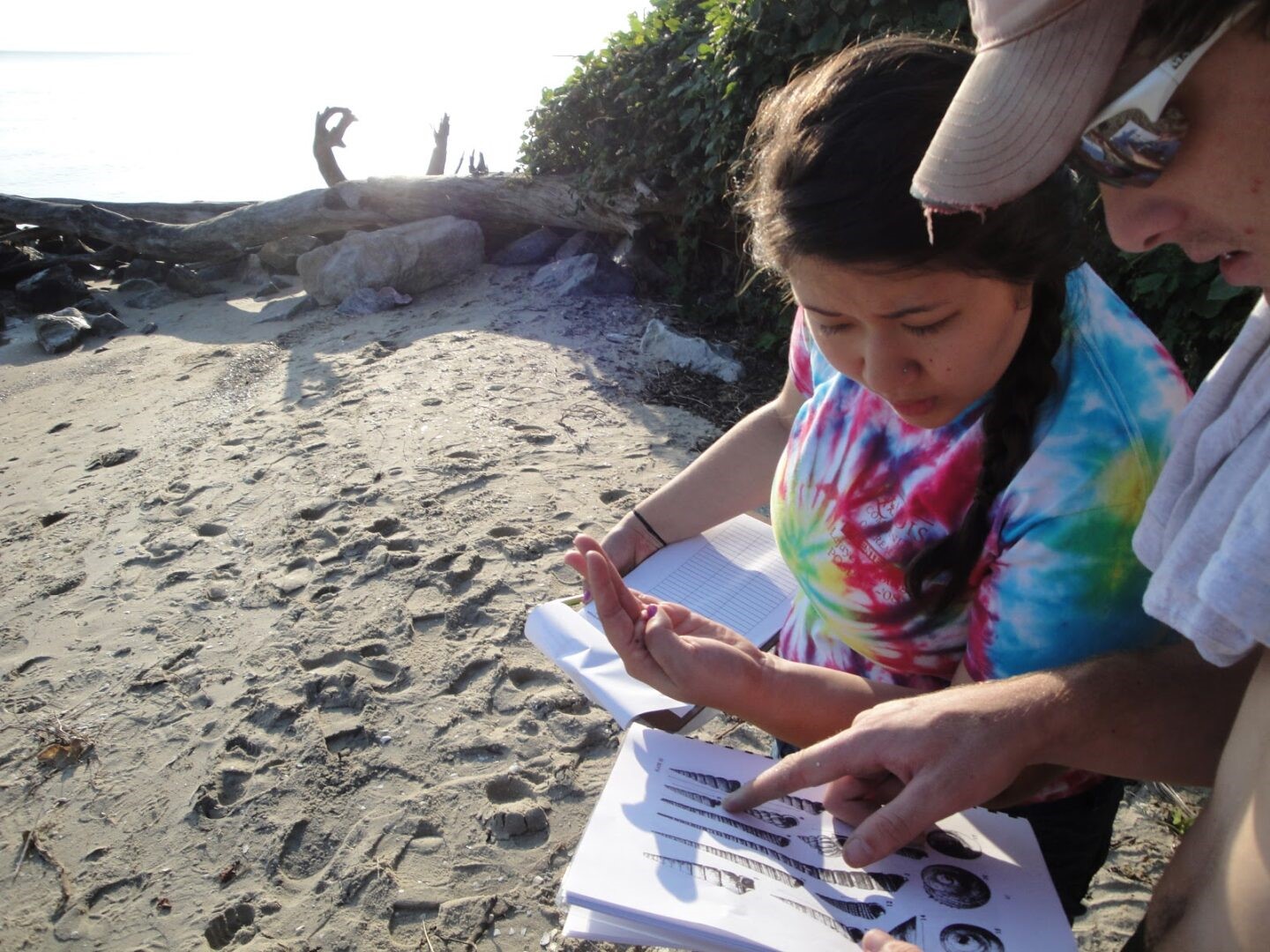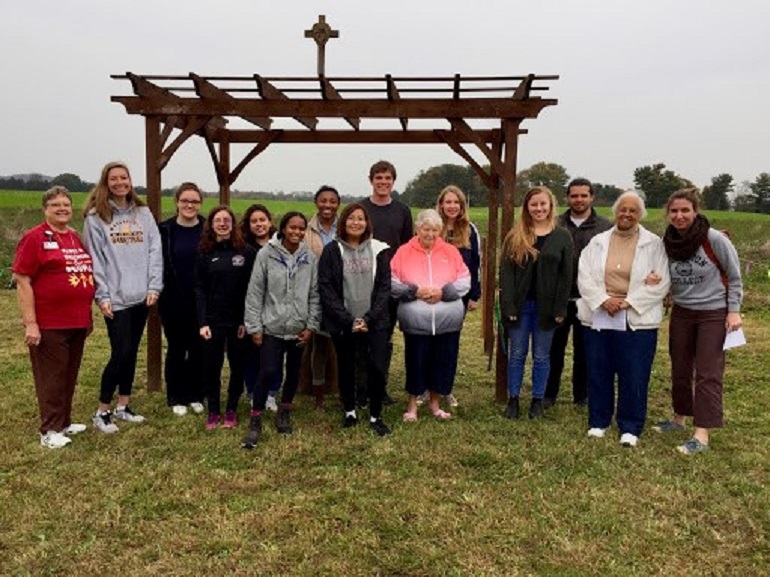Reflections from Lafayette College Faculty on Learning Outside of the Classroom
“Some phenomena are just too big to see in the size of the classroom and so field trips provide a means for students to see the magnitude of the concepts we teach. At the same time, being able to process scale and see how phenomena happen allows students to form better research questions that are actually answerable. When students are in the elements they also become accountable to each other and responsible for the task at hand. They truly rise to the occasion when they are out in the field. Beyond that, being onsite also creates a sense of shared humanity and history as students engage with places where some of the founding principles of our disciplines began.” – David Sunderlin, Associate Professor of Geology

Professor Sunderlin’s students identifying the 12 million year old fossils they collected along the Chesapeake Bay in Maryland.
“I teach courses in global environmental justice, and I worry that my students will come to associate extractive industries and ecological devastation with ‘faraway’ locales like the Niger Delta rather than recognizing them as live issues right here in Pennsylvania. When we visit and talk with residents of Lancaster County who organized against the Atlantic Sunrise Pipeline, students not only recognize pipeline resistance as profoundly local but also have a chance to experience the passion and commitment of experienced environmental activists. They are able to ask how a loose set of neighbors coalesced into a movement, they get to hear details about nonviolent protest trainings, they can discern whether activists are jaded or remain hopeful. That kind of active engagement with a topic is difficult to replicate through sheer texts, but I find it translates back into our classroom conversations post-trip. Students take our course discussions more seriously once they’ve seen these topics play out on the ground. Moreover, I find that students who have bonded on a multi-hour van ride are more willing to engage each other in the classroom: I recommend doing trips early in the semester because they build camaraderie.” – Sarah Dimick, Assistant Professor of Environmental Studies

Professor Dimick and her students with residents of Lancaster County.